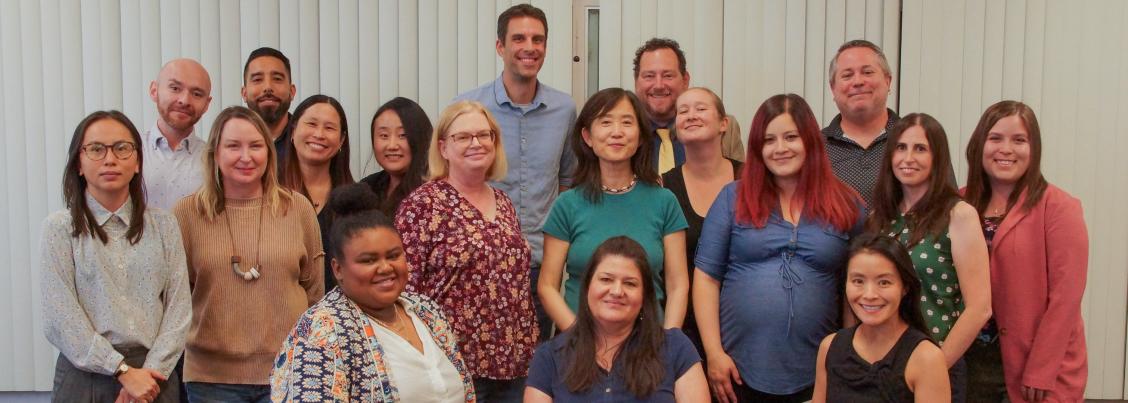
Biography
Education
- Ph.D. University of Victoria
- M.A. Indiana University
- B.A. Purdue University
Courses Taught
- PSY 321- Research Methods in Psychology
- PSY 367- Cognitive Psychology
Selected Publications and Presentations
Publications
Miller, M. B., & Kantner, J. (in press). Not all people are cut out for adaptive criterion shifting. Current Directions in Psychological Science.
Dobbins, I. G., & Kantner, J. (in press). The language of accurate recognition memory. Cognition.
Fenn, E., Ramsay, N., Kantner, J., Pezdek, K., & Abed, E. (in press). Nonprobative photos increase truth, like, and share judgments in a simulated social media environment. Journal of Applied Research on Memory and Cognition.
Grybinas, D., Kantner, J., & Dobbins, I. G. (in press). Mere exposure effect(s) in the context of explicit memory search. Memory & Cognition.
Kantner, J., & Dobbins, I. G. (2019). Partitioning the sources of recognition confidence: The role of individual differences. Psychonomic Bulletin & Review.
Kantner, J., Solinger, L. A., Grybinas, D., & Dobbins, I. G. (2019). Confidence carryover during interleaved memory and perception judgments. Memory & Cognition, 47, 195-211.
Baldassari, M. J., Kantner, J., & Lindsay, D. S. (2019). The importance of decision bias for predicting eyewitness lineup choices: Toward a Lineup Skills Test. Cognitive Research: Principles and Implications.
Frithsen, A., Kantner, J., Lopez, B. A., & Miller, M. B. (2018). Cross-task and cross-manipulation stability in shifting the decision criterion. Memory, 26, 653-663.
Kantner, J., Vettel, J. M., & Miller, M. B. (2015). Dubious decision evidence and criterion flexibility in recognition memory. Frontiers in Cognition, 6, 1320.
Kantner, J., & Lindsay, D. S. (2014). Category exemplars normed in Canada. Canadian Journal of Experimental Psychology, 68, 163-165.
Kantner, J., & Lindsay, D. S. (2014). Cross-situational consistency in recognition memory response bias. Psychonomic Bulletin & Review, 21, 1272-1280.
Lindsay, D. S., Kantner, J., & Fallow, K. M. (2014). Recognition memory response bias is conservative for paintings and we don’t know why. In D. S. Lindsay, C. M. Kelley, A. P. Yonelinas, and H. L. Roediger III (Eds.), Remembering: Attributions, processes, and control in human memory: Papers in honour of Larry L. Jacoby. New York: Psychology Press.
Kantner, J., & Lindsay, D. S. (2013). Top-down constraint on recognition memory. Memory & Cognition, 41, 465-479.
Kantner, J., & Lindsay, D. S. (2012). Response bias in recognition memory as a cognitive trait. Memory & Cognition, 40, 1163-1177.
Newman, E. J., Garry, M., Bernstein, D. M., Kantner, J., & Lindsay, D. S. (2012). Nonprobative photographs (or words) inflate truthiness. Psychonomic Bulletin & Review, 19, 969-974.
Kantner, J., & Tanaka, J. W. (2012). Experience produces the atypicality bias in object perception. Perception, 41, 556-568.
Tanaka, J. W., Kantner, J., & Bartlett, M. (2012). How category structure influences the perception of object similarity: The atypicality bias. Frontiers in Perception Science, 3, 147.
Cohen, A-L., Kantner, J., Dixon, R. A., & Lindsay, D. S. (2011). The intention interference effect: The difficulty of ignoring what you intend to do. Experimental Psychology, 58, 435-443.
Tanaka, J. W., Meixner, T. L., & Kantner, J. (2011). Exploring the perceptual spaces of faces, cars and birds in children and adults. Developmental Science, 14, 762-768.
Lindsay, D. S., & Kantner, J. (2011). A search for influences of feedback on recognition of music, poetry, and art. In P. Higham and J. Leboe (Eds.), Constructions of Remembering and Metacognition: Essays in honor of Bruce Whittlesea. Houndmills, UK: Palgrave Macmillan.
Kantner, J., & Lindsay, D. S. (2010). Can corrective feedback improve recognition memory? Memory & Cognition, 38, 389-406.
Warren, C. M., Breuer, A., Kantner, J., Fiset, D., Blais, C., & Masson, M. E. J. (2009). Target-distractor interference in the attentional blink implicates the Locus Coeruleus-Norepinephrine System. Psychonomic Bulletin & Review, 16, 1106-1111.
Kantner, J. (2009). Studying with music: Is the irrelevant speech effect relevant? In M. Kelley (Ed.), Applied Memory. Hauppauge, NY: Nova Science Publishers.
Nosofsky, R. M., & Kantner, J. (2006). Exemplar similarity, study-list homogeneity, and short-term perceptual recognition. Memory & Cognition, 34, 112-124.
Research and Interests
My work examines both basic/theoretical and applied questions in human memory and cognition, particularly at the intersection of memory and decision making. So many of the decisions we make are based on some form of supporting evidence from memory, yet memory is notoriously faulty. I am interested in the ways that evidence from memory is evaluated and translated into a decision, and the biases that enter into this process when memory evidence is incomplete or ambiguous. Three general goals guide this work: first, to identify biases that unify recognition memory and other decision-making processes, with an emphasis on individual differences; second, to determine the neural mechanisms of individual differences in the expression of these biases; third, to determine how these biases manifest behaviorally in applied settings.




